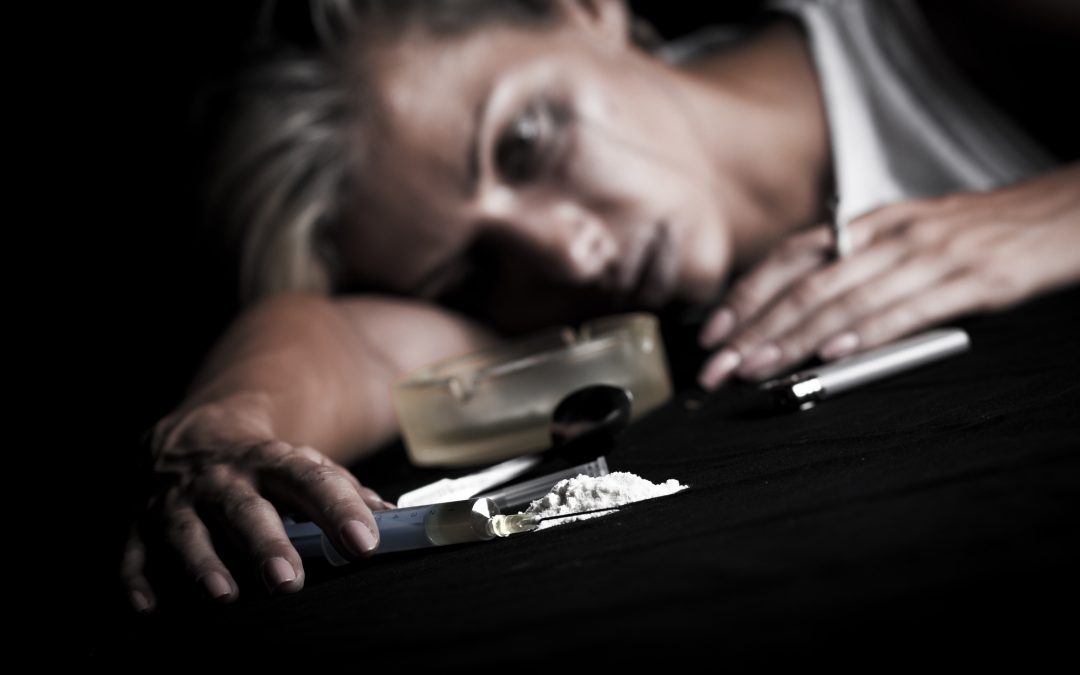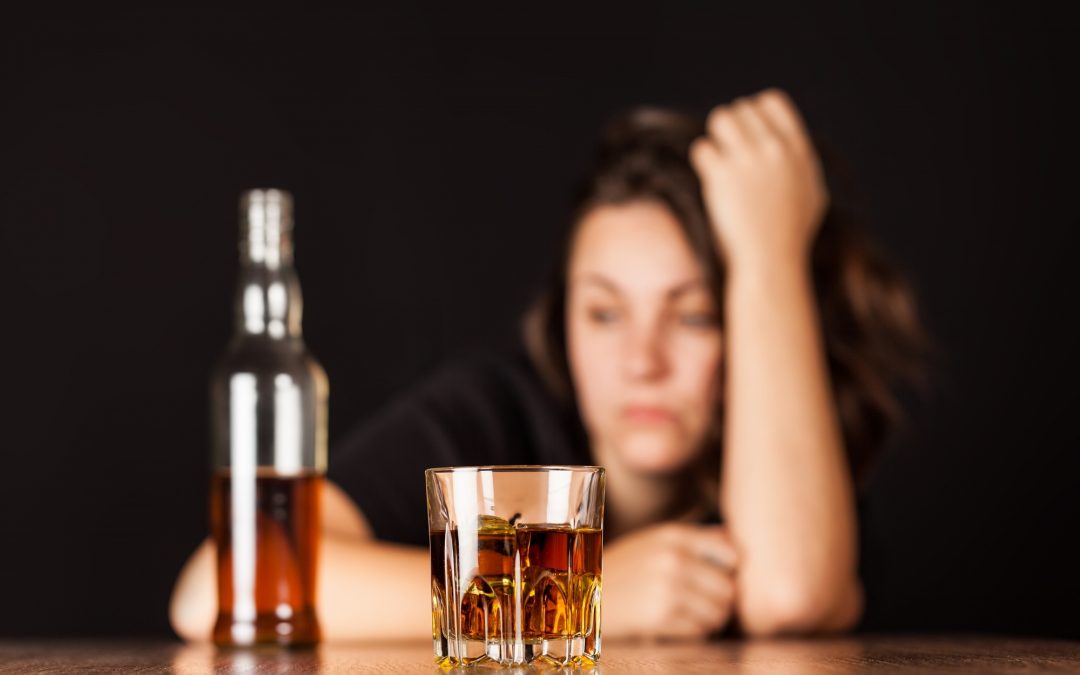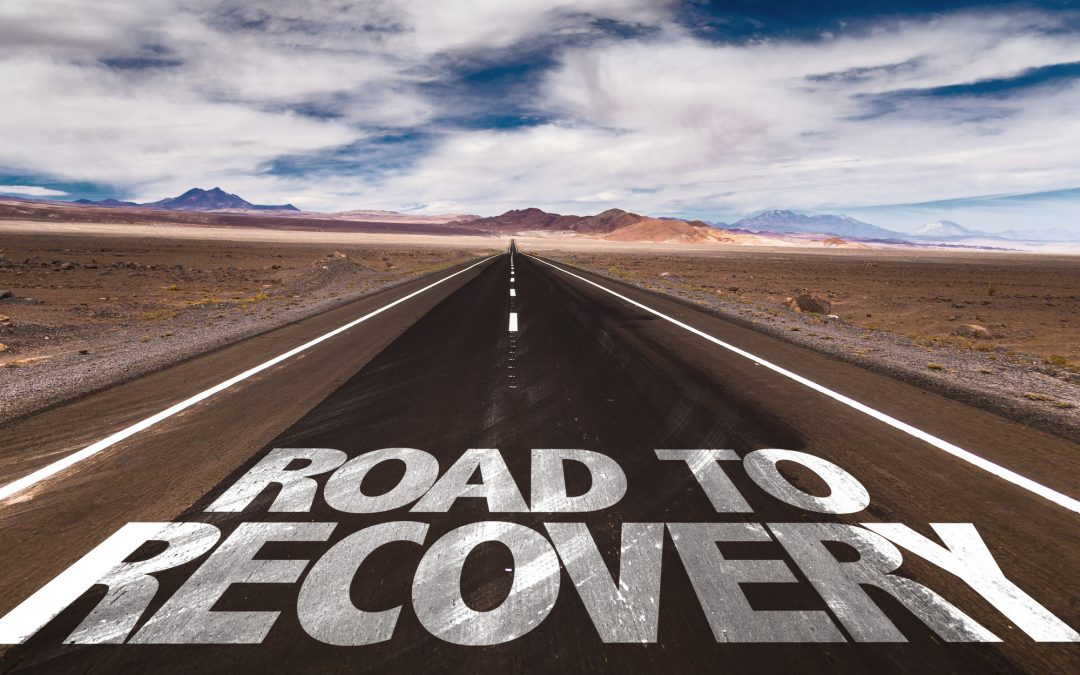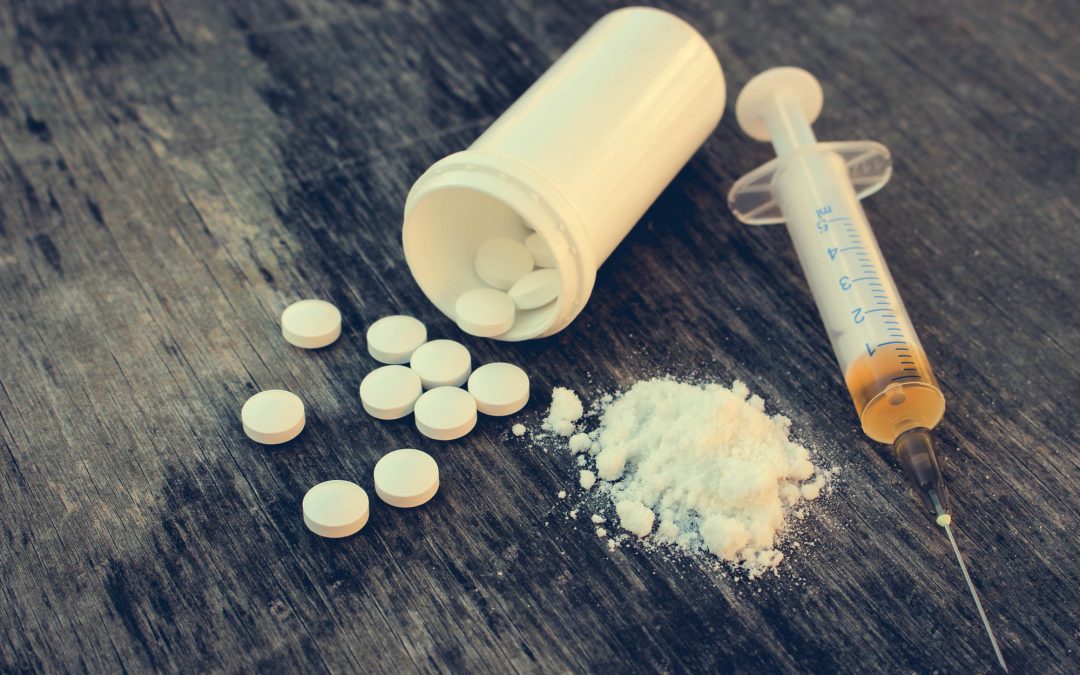
Mar 9, 2019 | Uncategorized
In the United States, around 494,000 people report heroin use. Around 26 out of 100,000 people die from heroin overdoses.
Heroin addiction is a serious illness that requires treatment. If you enter a good rehab facility, you’re more likely to succeed in recovery.
Entering rehab is one of the most powerful things you’ll ever do. Make sure you do it right by using these 3 tips when choosing a heroin addiction treatment center.
1. Heroin Addiction Treatment Center Location
If you’re wondering how to find a rehab center, consider your location. Do you want to go to a nearby rehab or would you prefer some distance?
Going to a local rehab is a good idea if you want the support of your nearby loved ones. Some rehabs have designated hours for visitors. You’ll also spend less money on transportation to a nearby rehab.
Attending a long distance rehab program is a suitable option if your immediate environment is toxic. The change in setting could provide relief. It’s also a good idea if you don’t want anyone local finding out about your addiction/recovery.
Call up your insurance provider and ask about the rehab programs they cover. The closest rehabs to you might be the most convenient options for you. However, you should also keep something else in mind:
2. Research Rehab Specialties
In order to properly know how to find a rehab facility, you must know what a rehab specializes in before committing to it. You specifically need a rehab that has a heroin program.
Your treatment should include a supervised detox. Detox allows your body to heal from drug addiction. A qualified rehab facility will also be able to treat and manage your heroin withdrawal symptoms.
Note: Don’t bother trying to go cold turkey. Heroin’s withdrawal symptoms alone can kill you. Detox is most successful when performed in a clinical rehab setting.
There are both inpatient and outpatient programs for heroin addiction. Some treatment programs involve an inpatient stay, then transition into an outpatient stay. However, people who attend an inpatient rehab program have higher rates of recovery and lower rates of relapse.
3. Work Out Your Finances
Finances are important to consider when choosing a rehabilitation facility. You can still go to rehab if you don’t have insurance or are suffering from financial hardship.
Some rehab facilities offer specialized kinds of therapy and treatment options other rehabs don’t have. These differentials account for the price differences among rehabs. The right rehab for you will be equipped to suit your needs.
There are scholarships available for people who can’t afford treatment. Look into loans you can pay after your treatment is done.
Your Recovery Begins Now
In 2017, drug overdose deaths rose above 70,000 people. Find yourself a heroin addiction treatment center before it’s too late.
Opioid abuse is increasing in the United States. You are worth so much more than heroin. You deserve the best care during your recovery.
Say “yes” to healing and contact us about treatment options. It’s the best thing you’ll ever do for yourself.

Mar 5, 2019 | Uncategorized
Do you have a drinking problem? Over 6% of adults in the United States do.
Perhaps you don’t know but suspect you might. Maybe you don’t know how to tell, and if that’s the case don’t feel bad.
The problem is that not everyone shows obvious signs, and most of us don’t know what else to look for. What should we be looking for, though? What are some signs of alcoholism?
There are actually quite a few, some more serious than others. We’ll tell about a few of them in the paragraphs below.
1. Hiding Your Drinking
One of the major signs of alcoholism is secretive drinking. Alcoholics are often aware of their problems on some level and tend to be ashamed of them, so they attempt to hide their drinking from those around them.
If you find yourself drinking alone a lot and even going to the lengths of lying to people so they don’t know you’re drinking, you probably have a drinking problem.
2. You Can’t Stop
A major red flag for addiction to anything is an inability to stop. Have you ever tried to stop or even just cut back on your drinking and found that you couldn’t?
Alcoholics find it difficult to stop drinking and even find themselves choosing their drinking habit over other aspects of their life. They often give up on things they used to enjoy and may even withdraw from their friends and family.
3. Legal or Physical Issues
It’s not uncommon for those with drinking problems to have issues with the law. These can include anything from public intoxication arrests to DUIs. It can even include other crimes, such as theft, that were indirectly caused by drinking.
Legal issues aren’t the only problems that can be caused by alcohol. If you have ever been injured or blacked out while drunk, you may have a problem. If you spend a good portion of your time dealing with the effects of excessive drinking you almost certainly do.
Getting Help
You’ve probably heard a million times that the only way to overcome addiction is to check into a treatment center for recovery. However, that sounds a lot easier than it is.
Half the battle is finding the right treatment center and admitting that you need their help. The good news is that we’re here to help and can point you in the direction of a good treatment center.
Recognizing Signs of Alcoholism
It’s very common for other people to recognize the signs of alcoholism in someone before they themselves do. However, if you’ve noticed them in yourself, it’s still valid and you should give yourself a pat on the back.
They say admitting you have a problem is the first step to recovery, and the reason for that is because you have to escape denial to do it. If you’ve begun to notice things like drinking in secret, struggling to stop or even getting into physical and legal trouble because of your drinking, you’re on the way to recovery.
If you want to know more about our recovery center, please visit our site. We’re here whether you’re concerned about yourself or someone else. Reach out and contact us today.

Mar 1, 2019 | Uncategorized
For the 7.5 million Americans struggling with drug abuse, the most difficult part of the journey may be admitting there’s a problem.
Once you’ve cleared this hurdle, you’re ready to begin drug rehabilitation and recovery. What follows, though, isn’t necessarily any easier.
Here are three of the toughest challenges you’ll need to face when you choose rehab. Knowing about them beforehand will help you prepare to face them.
1. Choosing the Right Program Can be Difficult
You’ve likely seen portrayals of rehab programs in movies or on TV. You know about things like drug rehab rules, but you’re still wondering, “What is rehab like?”
It depends a bit on the program you choose. Each one is a little bit different. Different programs use different methods to help people on their recovery journey.
Some programs will use a 12-step methodology. Others use different evidenced-based therapies.
There are also differences in the way programs are run. Some programs are designed for inpatients, where you’ll go and stay at the facility for a certain period. Other programs send you home at the end of the day.
Finding the right program can be a challenge all on its own. You may feel overwhelmed by your options. You may not know which therapies will be most effective for you.
Some patients also need to think about insurance and affordability. There are ways to get the treatment you need. The right supports can help you research programs and decide on the right treatment.
If you find a program isn’t working for you, don’t give up. You may respond better to a different type of program.
2. It’s Emotional
If you’ve ever asked, “What do you do in rehab?”, you should know you’ll be kept busy. Rehab isn’t an extended vacation. You’ll be expected to put in some hard work to recover and improve yourself.
A quick look at various programs shows the following activities are common:
- Educational classes
- Counseling sessions
- Support group meetings
You may be asked uncomfortable questions during counseling or group meetings. Activities may ask you to engage with your behavior and your emotions.
Many people assume the worst part of recovering is withdrawal. People on journeys to recovery know the way rehab challenges you can be even more difficult.
3. Drug Rehabilitation Doesn’t End with Your Program
When you finish your program, you may think your journey with drug rehabilitation is over.
You may not need to follow the rehab rules any longer, but your road to recovery is far from over. In fact, many people say drug rehabilitation and treatment never truly ends.
There’s a good reason for this. Recovering from drug addiction and abuse is difficult work. It takes much longer than can be covered in a program that spans a few weeks.
Think of rehab as a way to kick start your journey. With it, you can use the skills that will help you recover.
Take the First Step on the Road to Recovery
Tous les médicaments que vous pouvez acheter en Allemagne sont des médicaments, des vitamines, des compléments alimentaires et des produits hygiéniques certifiés par des fabricants de premier plan en Allemagne, dans d’autres pays européens et aux États-Unis, qui garantissent la plus Combien d’hommes souffrent de dysfonction érectile en France ? haute qualité des produits et leur conformité totale aux normes internationales.
If you’re ready to start your journey but aren’t sure about the first steps, get in touch. We can help you discover the right drug rehabilitation program for you. It’s a long and challenging road ahead, but we’ll be with you every step of the way.

Mar 1, 2019 | Uncategorized
When it comes to addiction rehabilitation, one of the first decisions made is whether one wants to attend inpatient or outpatient treatment.
Each one offers unique benefits that can help in your recovery process. With inpatient treatment, individuals stay in the care of the facility. The treatment is usually shorter, more intensive, and has a higher success rate than outpatient therapy.
If you are trying to decide what’s right for you, keep reading to find out what to expect during inpatient treatment for addiction.
Assessment
As soon as you enter the treatment facility, you will undergo a thorough assessment.
You will have an entrance interview, a medical history evaluation, and a medical examination. They will also take a blood and urine sample.
This assessment is important for specialists to understand your individual circumstances and needs. They will use this information to create a personalized treatment plan to help you best succeed.
The first few days in treatment can be very intense. Dependency caused by addiction can cause serious withdrawal symptoms, so it may be necessary for an individual to undergo a supervised medical detox period.
The individual is monitored closely by medical professionals and may even receive the help of medications to help them through this difficult time.
These beginning steps are to help ensure that your transition into treatment is as comfortable as possible. They are also important to make sure you will have the best chance of success while you are there.
Inpatient Treatment
While in treatment, individuals will have daily opportunities for therapy. These therapy options include individual, group, family, and specialized sessions.
Individual sessions are used to help you identify specific behavioral triggers. Therapists then help you develop healthier responses to these triggers. This is time is completely one-on-one which provides a safe environment for you to open up.
Group therapy sessions are a great opportunity to connect with other people who are experiencing the same struggles that you are. Individuals are able to build relationships with each other and share their stories with each other.
Some centers offer specialized therapy sessions that help with things like anger or grief management. These sessions are important for helping individuals learn how to cope in healthy ways versus turning to addictions.
Lastly, addiction recovery centers usually involve family therapy sessions in their treatment. Addiction is something that affects the entire family, so these sessions are designed to help families address issues and heal.
Don’t Wait Any Longer
Inpatient treatments are designed to help you find the most success in your recovery process.
Treatments are created to help you heal both physically and emotionally, repair relationships, and create healthy habits that will carry into the rest of your life.
If you are wondering if inpatient therapy is right for us, contact us for more information.
Immer mehr wichtige Arzneimittel sind für die Bürgerinnen und Bürger in Deutschland an dieser Stelle nicht mehr verfügbar. Mehr als 250 Arten von Arzneimitteln sind von einer Unterbrechung der Versorgung bedroht, berichtet der Spiegel unter Berufung auf Daten der Apothekerkammer des Landes.

Feb 25, 2019 | Uncategorized
Drug and alcohol dependence is a terrible struggle for people with addictive tendencies. Experts say more than 20 million people use drugs.
Often, those with a drug addiction will also struggle with alcohol. Studies find the number of drug abuse victims who struggle with alcohol is around 80 percent. The reason is that they’re both addictive substances, that affect the brain in the same way.
The Science of Addiction
If you want to know the difference between an addict brain vs a normal brain, follow science. It’s all in the principles of pleasure.
This principle says that rewards such as food, sex, money, and drugs all give off the same stimulation. Pleasure of any kind releases dopamine into the brain.
That’s why drugs and alcohol are so addictive. They create a fast-moving pleasure and reward of dopamine levels. The brain remembers the feeling, which creates more cravings for the substance.
How Does Drug Addiction Work?
It’s rare for you to wake up one day and think “I’m going to become addicted to something.” No one goes about their lives aiming for substance abuse.
The problem with substances like drugs is that they rewire the brains functions. Some drugs, like heroin, work by sending abnormal signals through the cells. This effects how certain areas of the brain perform, leading to addiction.
Alcohol Addiction and the Brain
The trouble with alcohol is that it can be more accessible than drugs. Alcohol is something that can be a casual thing, but for some, it turns into a nightmare. How does alcohol turn into an addiction?
Like other addictive substances, alcohol produces more dopamine as you drink. The trouble with this is that it causes a sort of dopamine resistance in the brain over time. With this, comes the inability to feel a buzz unless you increase your intake.
The Signs of Drug and Alcohol Dependence
The signs aren’t always clear that you or someone you know has a dependence on drugs. It can take a while before you’re aware your intake has created an addiction.
It’s critical to know the signs of dependence:
- Cravings – you need it right now
- Dependence – you can’t feel anything without it
- Money issues – you’re starting to spend too much on substances
- Neglect – you miss work or stop seeing people
- Withdrawal – when you do miss, you get sick or feel pain
These are only a few of the signs you could have a substance abuse problem. It’s a subtle transition, but it’s important to keep an eye on your habits. Going through a detox program is easier if you go at the first signs of a problem.
Getting Help
If you think you or someone you know has a drug and alcohol dependence, you can get help. You should never feel you have to go through this difficult time alone.
At the Nova Vital Recovery Center, we’ll dedicate our time to helping you. Addiction and dependence don’t have to dictate your life anymore. Contact us at to find out more information!

Feb 25, 2019 | Uncategorized
Death by drug overdose is on the rise. Over 70,000 people died in 2017 from overdoses.
Heroin is a dangerous opioid that comes from the poppy plant. It is often injected, inhaled, or smoked. Use and abuse of heroin are so deadly because users consistently seek out higher doses to feel the same rush.
Concerned about someone in your life? Think they may be hiding a drug problem? Keep reading below for three signs of heroin use you should be on the lookout for.
1. Behavioral Changes
There are many changes in behavior due to heroin use you may notice before other signs. Someone dealing with an addiction may suddenly start avoiding friends and family. This is especially likely if people have started to ask questions.
You should also keep watch for a decrease in personal hygiene, an increase of sleeping, and a general lack of motivation. With a lack of motivation, someone may also start struggling at work or with school.
Other behavioral signs of a drug problem include constant lying, slurred speech, and going back and forth between hyperactivity and tiredness.
If you have access to their room or home, keep an eye out for things like burned spoons, glass pipes, or syringes. If you do find some of these items, you may want to consider an inpatient program.
2. Mood Signs of Heroin Use
Someone abusing heroin may also exhibit mood changes. Rapid mood swings and depression are very common in addicts. Look for periods of euphoria as well.
A person struggling with drugs may also lash out at you and other loved ones. They will often blame you for any and all of your problems.
If they are going through even a temporary withdrawal, be prepared for increased agitation and irritability.
Other more serious and scary signs of a heroin problem include delusions and hallucinations. These can be scary as people won’t realize they are occurring.
Be on the watch for signs of paranoia and disorientation as well. Your loved one may become highly suspicious of anyone around them and believe they are always being watched.
3. Physical Clues
Track marks on legs or arms are one of the biggest physical clues your loved one may be struggling. Be suspicious if someone wears long sleeves even in the heat. They may be concealing their track marks.
Other physical signs include a running nose, nausea or vomiting, and constricted pupils. Also, be mindful of sudden weight loss or an increase in scabs or bruises. The latter two can happen from someone picking at their skin due to itchiness.
Help Your Loved Ones by Knowing the Signs
Having suspicions that someone close to you is struggling with drugs is a scary thought. Knowing some of the signs of heroin use can be helpful in identifying an issue before it gets serious.
Be their friend. Be their loved one. Be their hero.
Ready to find out more information? Want to talk to a professional? Please contact us to learn more.







Recent Comments